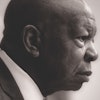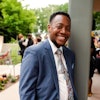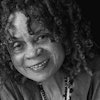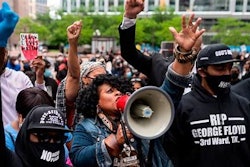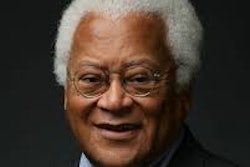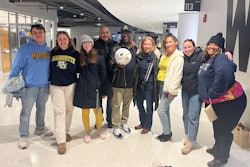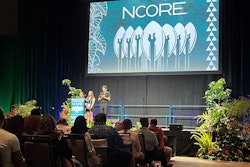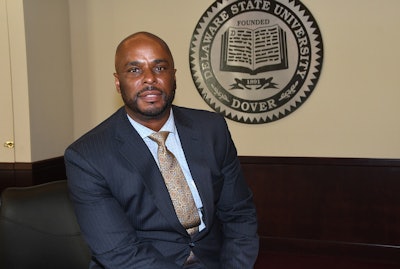 Dr. Michael Casson, dean of the College of Business at Delaware State University and a panelist at the National Urban League's 2021 conference
Dr. Michael Casson, dean of the College of Business at Delaware State University and a panelist at the National Urban League's 2021 conference
in a Wednesday virtual session, titled, “The 21st Century Blueprint for Building Black Wealth,” panelists focused on career growth and networking.
“When we think about our current community, we see that Black wealth disparities still persist,” said Dr. Michael H. Casson, dean of the College of Business at Delaware State University (DSU), one of the country’s historically Black colleges and universities (HBCUs).
Before the pandemic, studies showed that almost 30% of Black college-educated households would not have been able to pay their bills after a $400 emergency expense. Casson and fellow panelists pointed out that COVID-19 only worsened this financial precarity.
“One of the key indicators of that gap is home ownership,” he said. “Black and brown home ownership rates remain far lower than white ownership. But these disparities don’t happen in a vacuum. We should think about how we are investing in our own communities.”
Even though more Black people in the U.S. are getting college degrees, he added, the majority of wealth continues to lie in the hands of white communities. Yet Casson said HBCUs still play a key role as engines of Black socioeconomic mobility.
“At DSU, we’re primarily teaching first-generation students,” he said. “So, for institutions like us, that racial wealth gap is bridged a lot of the time right at HBCUs because of the communities we serve.”
Casson added that DSU has been preparing more students to break into the growing IT industry. Getting technology training can be one way, he argued, to tap into today's wealth-creation opportunities.
“Many HBCUs are willing to engage students in the entrepreneurship space as well,” he said. “We have assets and resources at DSU that can launch your ideas. So, making an investment at the right higher education institution can help you succeed.”
Fellow panelist John W. Rogers, chairman and co-chief investment officer of Ariel Investments, which is the country’s first African-American-owned asset management firm, similarly advocated for education on investing in more Black communities.
“It’s important to talk with young people of color about the stock market,” said Rogers. “But that can be a challenge. The world of investing was not built to make people like us comfortable.”
Rogers additionally suggested people ask their place of employment or their financial advisor to include mutual funds from minority-owned firms. Those conversations can hold communities accountable to spend money on Black-owned businesses.
Ngozi Nnaji, another panelist and the owner of Ako Insurance Consulting, LLC, an insurance company, also pushed for supporting financial literacy among young people of color.
“Often as parents, we isolate kids from insurance questions,” said Nnaji. “But if we make some choices open to the family, then we educate people from a young age on what they can do when they have the capital to make these kinds of decisions.”
She similarly pointed out that HBCUs and other higher education institutions can help educate college students on ways to generate wealth.
“How do we teach students to understand the insurance industry? How do we organically create a pipeline that lets them hone their wealth over decades not years?” said Nnaji. “Because if you don’t have that knowledge, then you can’t create the discipline to do what needs to be done.”
Rebecca Kelliher can be reached at [email protected]
Editor's Note: In an earlier version of this story, we incorrectly reported that Ariel Investments is the country's largest minority-run mutual fund firm. The story has been updated to reflect the correct description: Ariel is the country's first African-American-owned asset management firm. Diverse regrets the error.


